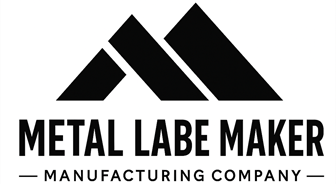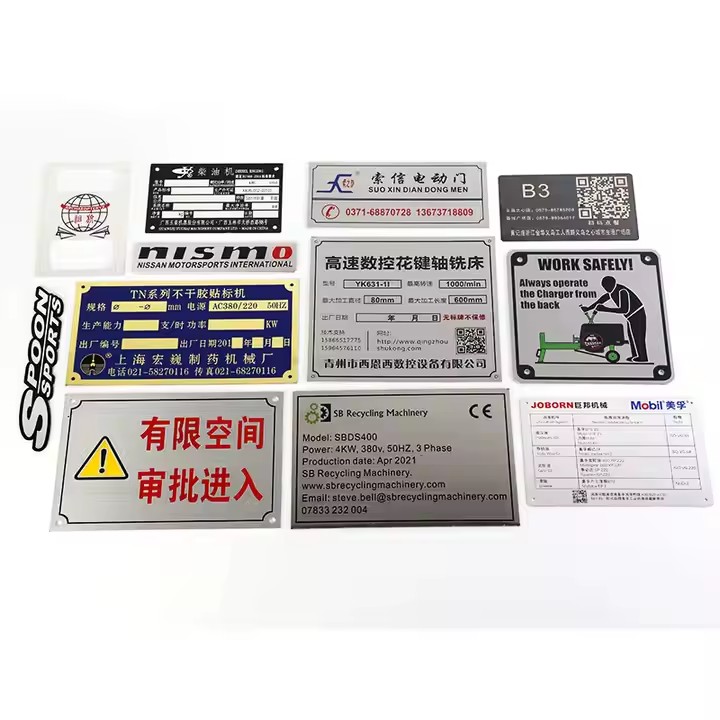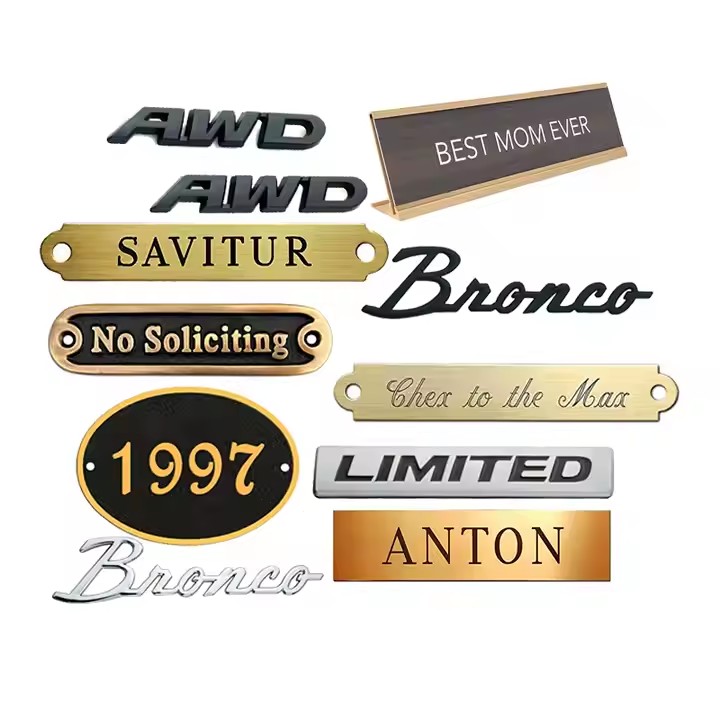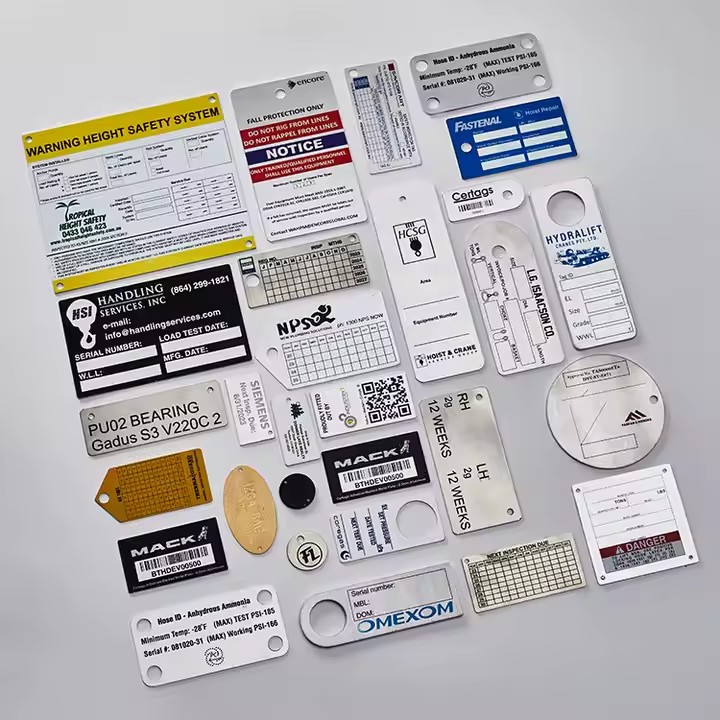What Are Custom Metal Labels?
Custom metal labels are durable identification tags made from various types of metal, designed to convey important information such as branding, instructions, serial numbers, safety warnings, or product specifications. These labels are highly resistant to wear, environmental conditions, and chemicals—making them ideal for industrial, commercial, and even decorative applications.
They are widely used in sectors such as:
-
Manufacturing and machinery
-
Electronics and electrical equipment
-
Automotive and aerospace
-
Medical devices
-
Branding and promotional products
Custom metal labels can be tailored in terms of size, shape, finish, engraving, and mounting options, depending on the specific application and environment they are intended for.
Common Materials Used for Metal Labels
Choosing the right material for your metal labels is essential, as each offers unique properties in terms of durability, appearance, and cost. Below are some of the most commonly used materials:
1. Aluminum
Features:
-
Lightweight and corrosion-resistant
-
Excellent for both indoor and outdoor use
-
Can be anodized for color or protective coating
-
Cost-effective and easy to fabricate
Common Uses:
-
Equipment labels
-
Barcode tags
-
Control panels
-
Instructional plates
2. Stainless Steel
Features:
-
Extremely strong and corrosion-resistant
-
Withstands high temperatures and harsh environments
-
Excellent chemical resistance
-
Long-lasting and low-maintenance
Common Uses:
-
Industrial machinery nameplates
-
Medical equipment tags
-
Marine and outdoor signage
-
Food processing applications
3. Brass
Features:
-
Distinctive golden appearance
-
Offers moderate corrosion resistance
-
Ideal for decorative or vintage-style tags
-
Can be polished or antiqued for custom looks
Common Uses:
-
High-end branding plates
-
Name badges
-
Plaques and awards
-
Decorative signs
4. Copper (Optional Material)
Features:
-
Visually striking with natural reddish tones
-
Develops a patina over time
-
Excellent conductivity (used in electronics)
Common Uses:
-
Artistic labels
-
Electrical grounding tags
-
Custom branding elements
5. Other Specialty Materials
Depending on the requirements, some clients request specialized materials such as titanium (extreme durability), or zinc alloys (cost-effective and strong), especially in niche industries like aerospace or custom crafts.
How to Choose the Right Material
When selecting a metal for your custom labels, consider the following:
-
Environment: Will the label be exposed to moisture, chemicals, or UV light?
-
Durability Requirements: Does the application involve extreme temperatures or heavy abrasion?
-
Aesthetic Goals: Is appearance or branding a major concern?
-
Budget: Stainless steel may be more expensive than aluminum, but might be necessary for rugged use.
Conclusion
Custom metal labels offer a combination of functionality, durability, and aesthetic value. By understanding the properties of different materials—aluminum, stainless steel, brass, and more—you can make an informed decision tailored to your application.
Whether you’re labeling machinery or adding a premium branding touch, choosing the right metal is key to ensuring performance and longevity.







